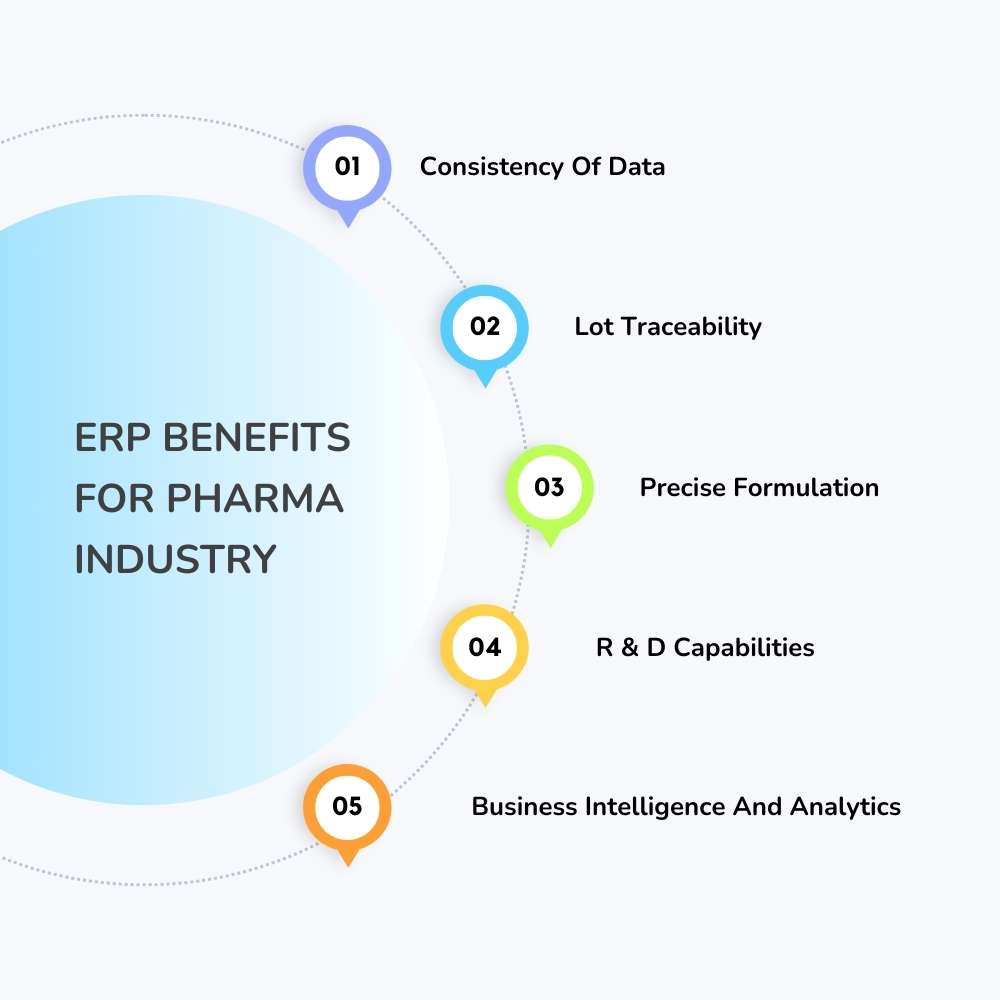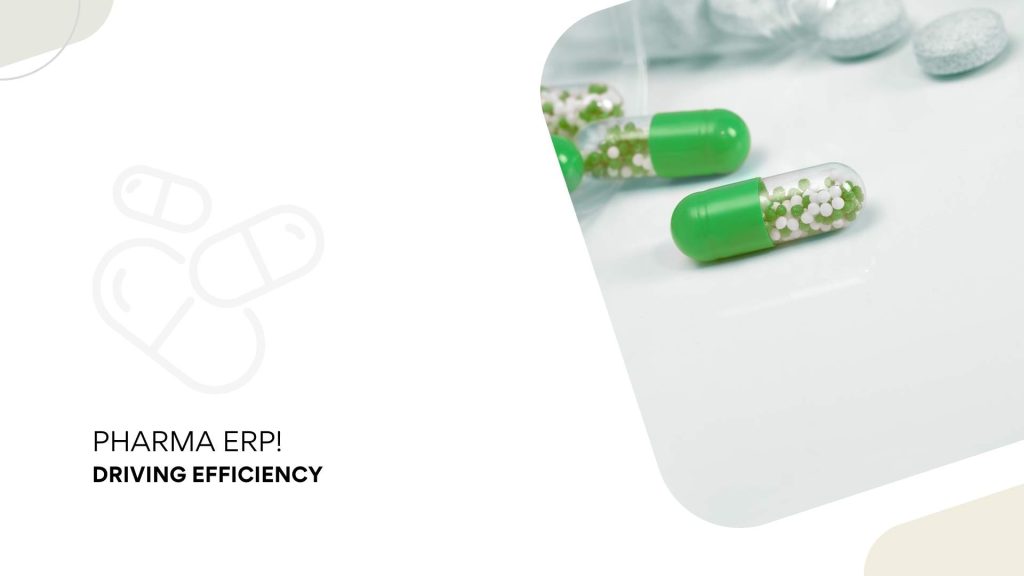The pharmaceutical industry is an indispensable pillar of modern healthcare, relentlessly dedicated to advancing medical science, alleviating human suffering, and enhancing the quality of life.
With a profound commitment to research, development, and innovation, this industry plays a pivotal role in discovering, formulating, and delivering life-saving medications and treatments to individuals worldwide.
Spanning a diverse landscape of drug manufacturing, biotechnology, and healthcare services, pharmaceutical companies are at the forefront of addressing prevalent diseases, pioneering groundbreaking therapies, and continuously striving to meet the evolving health needs of global populations.
Amidst challenges and triumphs, the pharmaceutical industry remains an indispensable force in shaping the landscape of modern medicine, poised to usher in transformative advancements that hold the promise of healthier futures for generations to come. Let’s see the challenges in the pharma industry.
Challenges in the Pharmaceutical Industry
The pharmaceutical industry faces many challenges that significantly impact its operations, innovation, and, ultimately, the delivery of healthcare solutions to patients globally. Those are:
Changing Government Regulations:
Stringent and frequently evolving government regulations heavily influence the pharma landscape. Constant modifications in compliance requirements, safety standards, and drug approval processes can pose substantial hurdles for companies. Navigating these intricate regulatory frameworks demands significant resources, time, and expertise, often leading to delays in bringing new medications to market.
Supply Chain Disruptions:
The pharmaceutical supply chain is a complex network involving numerous components, from raw material sourcing to manufacturing and distribution. Disruptions at any stage, whether due to natural disasters, geopolitical tensions, or unexpected events (e.g., the COVID-19 pandemic).
Quality Control:
Maintaining stringent quality control standards is paramount in the pharmaceutical sector. Ensuring drug safety, efficacy, and consistency necessitates meticulous monitoring and adherence to quality standards throughout manufacturing.
With the growing complexity of manufacturing processes, the increasing demand for personalized medicine. And the globalization of supply chains, upholding high-quality standards remains a persistent challenge for pharmaceutical companies.

How Cloud ERP Helps Pharma Companies Overcome Challenges
Cloud ERP plays a pivotal role in empowering pharmaceutical companies to navigate and overcome various industry challenges by offering integrated solutions across multiple facets of their operations:
Regulatory Compliance Management: ERP systems for the pharmaceutical industry incorporate tailored features to ensure compliance with ever-evolving regulatory standards. These platforms centralize data management, enabling companies to maintain detailed records of processes, formulations, and quality assurance measures. By automating documentation and providing real-time insights, ERP software aids in maintaining adherence to stringent compliance requirements minimizing errors.
Streamlined Manufacturing Processes: ERP solutions optimize manufacturing workflows by integrating production planning, inventory management, and resource allocation. These systems facilitate better coordination between different departments, allowing for more accurate forecasting of demand, efficient resource utilization, and seamless coordination from raw material procurement to finished product distribution.
This streamlining of processes enhances operational efficiency, reduces lead times, and supports the timely delivery of pharmaceutical products to meet market demands.
Enhanced Quality Control: ERP platforms with quality control modules enable comprehensive monitoring and management of product quality throughout the manufacturing lifecycle. By implementing standardized processes and automated quality checks. These systems help identify and rectify deviations, ensuring that products meet stringent quality standards. Real-time data analytics and reporting functionalities within ERP software enable proactive decision-making to maintain consistent product quality and reduce the risk of non-compliance issues.
Optimal Supply Chain Management: ERP software facilitates end-to-end visibility and control over the pharmaceutical supply chain. With features like demand forecasting, vendor management, and inventory optimization, these systems enable companies to mitigate the effect of supply chain disturbances by recognizing possible issues, managing inventory levels efficiently, and helping rapid response to changes in demand or supply. This visibility enhances resilience, enabling timely adjustments to ensure uninterrupted access to critical components and finished products.
Financial Management and Cost Control: ERP platforms offer robust financial management functionalities, allowing pharmaceutical companies to monitor costs, manage budgets, and optimize spending across various operations.
By integrating financial data with other business processes, these systems provide insights into profitability, cost drivers, and performance metrics, facilitating informed decision-making to optimize resource allocation and reduce operational expenses.
Implementing ERP Software in the Pharmaceutical Industry
Implementing ERP solutions within the pharmaceutical industry is a strategic undertaking that involves several crucial steps:
Evaluating Business Needs: The initial phase comprehensively evaluates the organization’s requirements and operational challenges. It includes understanding existing workflows, identifying pain points, and outlining the key functionalities necessary for seamless integration. Compliance requirements and quality control measures take center stage during this assessment, given the stringent regulatory environment.
Customization and Configuration: Implementing ERP in the pharmaceutical sector necessitates customization and configuration to align the software with specific industry requirements.
It involves tailoring the ERP system to adjust unique processes such as batch manufacturing, serialization, traceability, and compliance with Good Manufacturing Practices (GMP). Custom ERP solution is finely tuned to address the industry’s complex needs.
Data Migration and Training: Transitioning to an ERP system involves migrating existing data from legacy systems to the new platform. Ensuring the accuracy and integrity of data during this phase is crucial. Simultaneously, comprehensive training programs are essential to equip employees with the required skills to utilize the new ERP software. Training sessions should cover various functionalities and best practices, emphasizing compliance and data security protocols.
Continuous Improvement: Implementing ERP software is not a one-time event but an ongoing refinement and optimization process. Continuous improvement involves regularly evaluating system performance, gathering user feedback, and identifying areas for enhancement. Adapting to growing regulatory requirements and industry best practices ensures that the ERP remains aligned with the organization’s changing needs, supporting agility and competitiveness.
Conclusion
Acumatica ERP presents a transformative solution for the pharma industry by streamlining operations, ensuring compliance, and enhancing overall efficiency. Its robust features enable seamless management of complex processes.
Acumatica empowers decision-makers to optimize resource allocation, reduce wastage. And swiftly adapt to changing market demands through real-time data visibility and analytics.
Its scalability caters specifically to the intricate needs of pharma manufacturing, fostering innovation, agility, and sustained growth within the industry. Acumatica ERP is a catalyst for driving excellence, productivity, and competitiveness in the pharma industry.

Sangeetha brings 20 years of experience in Information Technology which includes Solution architecting, building micro services, research, and evaluation of business applications, integrating apps.

